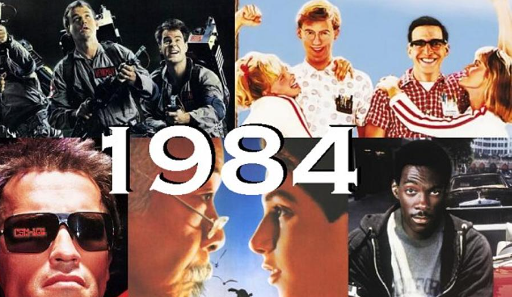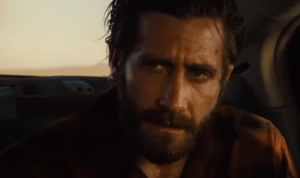Orwell’s Vision Brought to Life: A Deep Dive into the 1984 Movie

The movie adaptation of George Orwell’s classic novel, “1984,” takes us into a dystopian future where individuality is suppressed, and Big Brother watches every move. Set in the superstate of Oceania, the film follows Winston Smith, a low-ranking member of the ruling Party, as he begins to question the regime’s oppressive tactics. The movie brilliantly captures the essence of Orwell’s vision, highlighting the dangers of totalitarianism and the loss of personal freedoms. With its haunting visuals and compelling performances, “1984 Movie” serves as a stark reminder of the importance of safeguarding our rights and freedoms.
Also Read:- New Netflix Movies Coming in 2023
In the annals of cinematic history, few films have managed to capture the essence of a dystopian future as vividly and hauntingly as the adaptation of George Orwell’s “1984.” A tale set in a world where individual thought is a crime, and the omnipresent Big Brother monitors every move, the movie serves as a chilling reminder of the dangers of unchecked power and the erosion of personal freedoms.
Setting the Stage: The World of ‘1984’
The movie plunges viewers into the superstate of Oceania, a bleak, gray world where the Party, led by the enigmatic Big Brother, wields absolute control. In this society, history is rewritten daily, love is forbidden, and even thoughts are policed by the Thought Police. It’s a world where language is manipulated to control minds, and rebellion, even in one’s heart, is punishable by death.
Winston Smith: A Beacon of Hope
The film follows the life of Winston Smith, a seemingly ordinary Party member who works at the Ministry of Truth, altering historical records to fit the Party’s ever-changing narrative. However, beneath his compliant exterior, Winston harbors subversive thoughts. His growing disillusionment with the Party and a clandestine love affair with Julia set him on a dangerous path of resistance and discovery.
Themes and Symbolism
The brilliance of “1984” lies not just in its compelling storyline but in its exploration of profound themes. The movie delves deep into the concepts of truth, freedom, love, and control. The omnipresent telescreens, the chilling Two Minutes Hate sessions, and the dreaded Room 101 are powerful symbols of a society where conformity is enforced, and individuality is crushed.
Orwell’s Vision and its Cinematic Interpretation
George Orwell’s “1984” was a prophetic novel, and the movie adaptation captures its essence with remarkable fidelity. The film’s muted color palette, stark sets, and haunting score create an atmosphere of perpetual dread, mirroring the bleakness of Orwell’s dystopia. The performances, especially that of John Hurt as Winston, are poignant and resonate with the audience, making the characters’ despair and fleeting moments of hope palpable.
The Timeless Relevance of ‘1984’
While the movie was released in the 1980s, its themes are eerily relevant even today. In an age of surveillance, fake news, and data privacy concerns, “1984” serves as a cautionary tale. It reminds viewers of the importance of vigilance, critical thinking, and the preservation of individual rights in the face of growing governmental and technological control.
Conclusion
“1984” is more than just a film; it’s a cinematic experience that challenges viewers to question, reflect, and value their freedoms. It stands as a testament to the power of cinema to not only entertain but also enlighten and provoke thought. As Orwell himself wrote, “Freedom is the freedom to say that two plus two make four.” In a world where truths are increasingly malleable, “1984” underscores the importance of holding onto this fundamental freedom.








